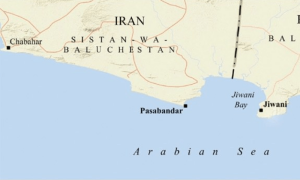
TAXILA: Less rain, low soil fertility and commercialisation have badly affected the famous Khanpuri citrus orchards causing a decline in the yield of the fruits besides affecting its size and unique taste.
Spread over around 280 hectares, the orchards of Khanpur and Punj Khatta are famous around the world for the distinct taste of its produce, especially the blood oranges, ruby red and shakri, oranges, musammi, fruiters and grapefruits.
But less rain in the summer, shortage of water being supplied from the nearby dam and massive commercialisation in the area with the launching of new housing societies have decreased the per-tree yield of the citrus fruits.
Officials at the crop reporting centre told Dawn that the annual produce of these varieties used to range between 2,200 and 2,400 tons but over the years it had reduced by around 70pc to 80pc. Changes in temperatures, commercialisation, inflation, high rates of pesticides and fertiliser have affected the production causing heavy losses to the orchard owners.
The officials said the yield was now not sufficient even to meet the local demand and vendors were cheating the residents by selling them different varieties of orange from Sargodha.
According to local farmers, the dry spell has affected the underground water level.
The diversion of Khanpur Dam water to Rawalpindi and Islamabad for drinking purposes also caused a reduction in the supply of water to the citrus orchards.
“The low rainfall in the summer this year played havoc with the orchards. The shortage of water supply from the dam also affected the size and taste of the fruits,” said a farmer, Ghulam Fareed.
Another farmer, Tayyab Mehmood, said there was a drought-like situation in Khanpur during the summer which led to the suspension of water from the dam to the area for irrigation. He said due to the increase in prices of diesel, the rate of tractors used for hoeing the land was also doubled.
This year, the oranges are smaller and less juicy, mainly because of the unavailability of water, he added.
“In the past, a farm owner could earn Rs1.5 million per year by selling fruits but due to the low water supply from the dam and increase in the cost of pesticides and fertiliser as well as low per acre crop, they are now facing losses,” said Raja Javaid, another farmer.
Makeshift kiosks have been set up along the Taxila-Khanpur Road by local farmers to sell oranges. However, the buyers seemed disappointed with the taste and size of the fruits.
Adnan Bajwa said he had come from Islamabad to buy the famous fruit but was disappointed after checking its taste.
Published in Dawn, December 20th, 2018













































